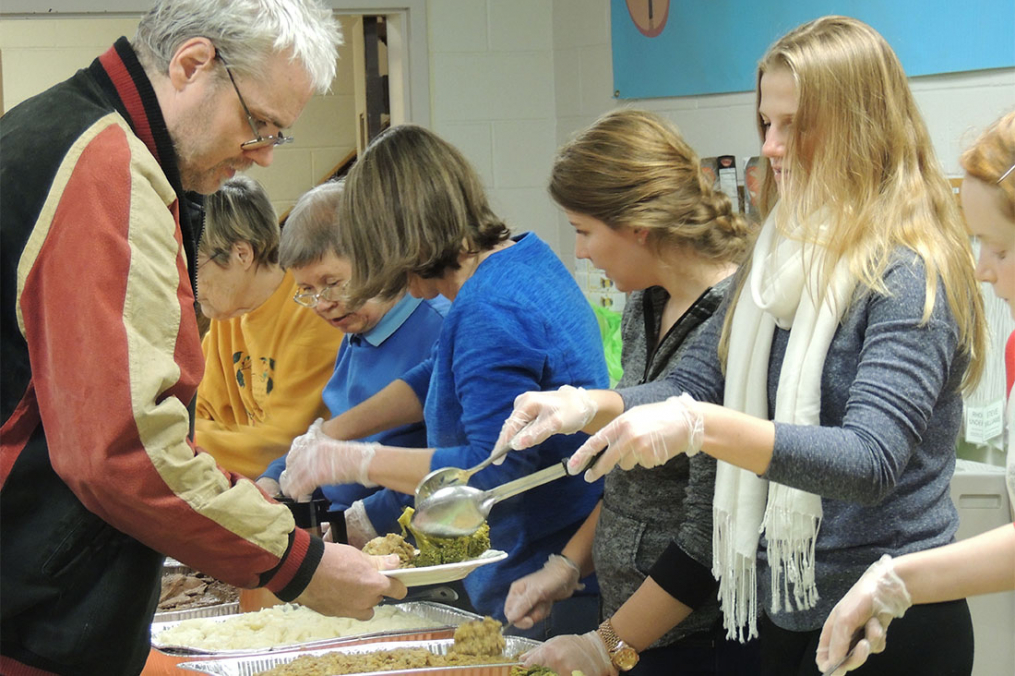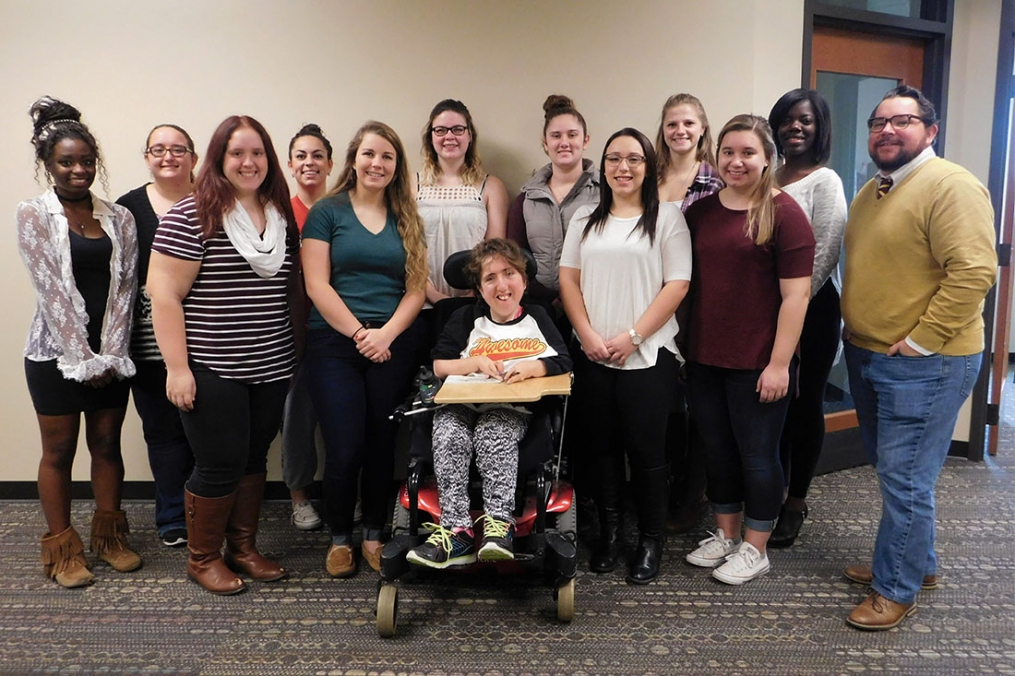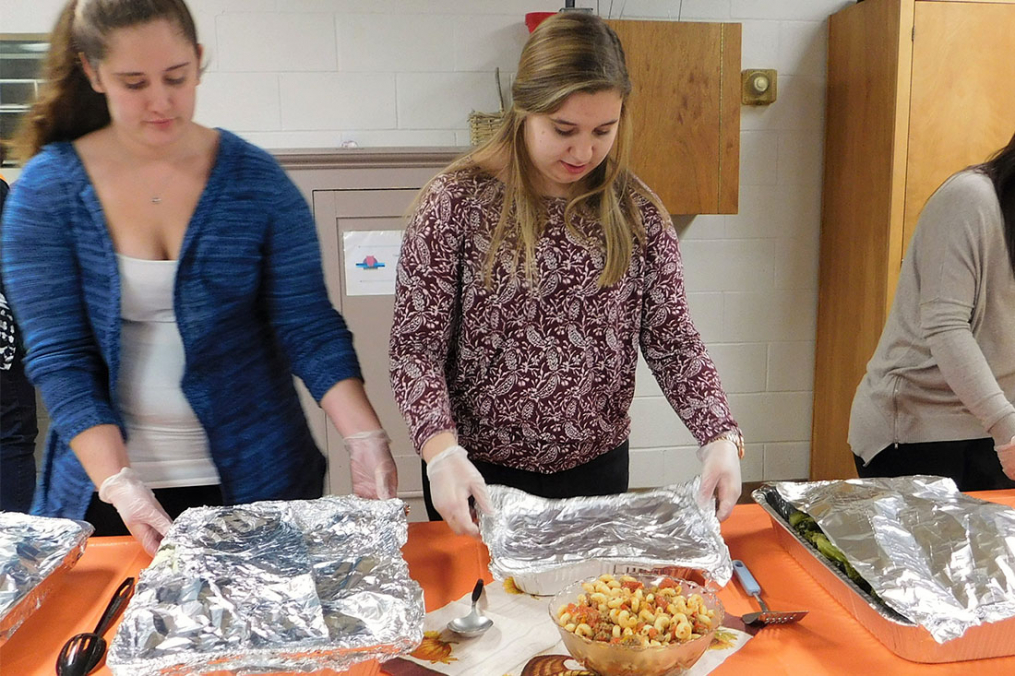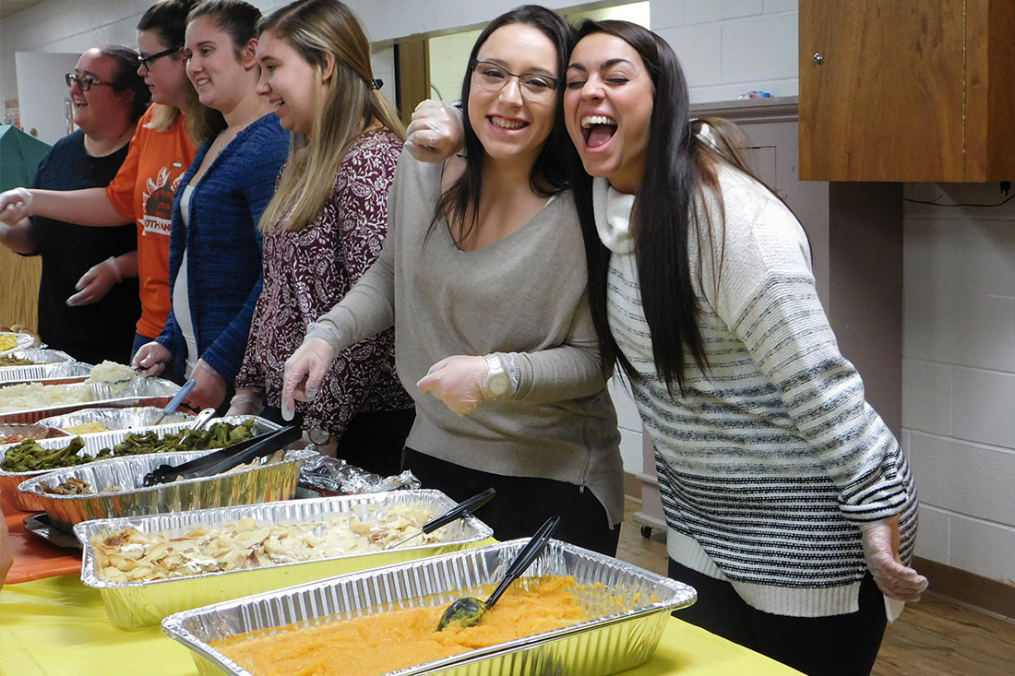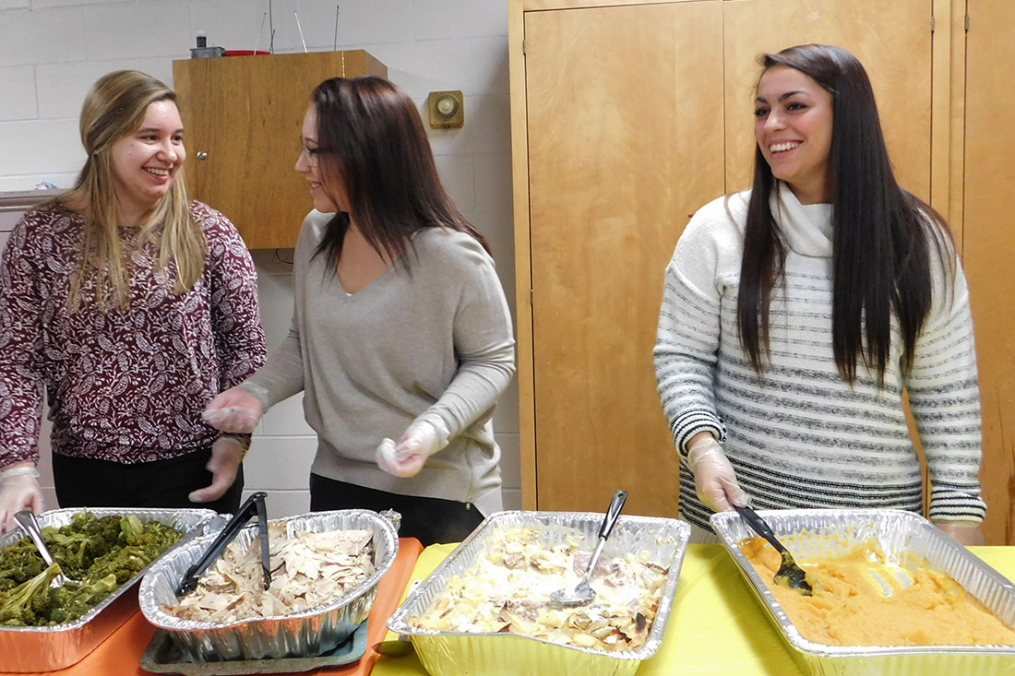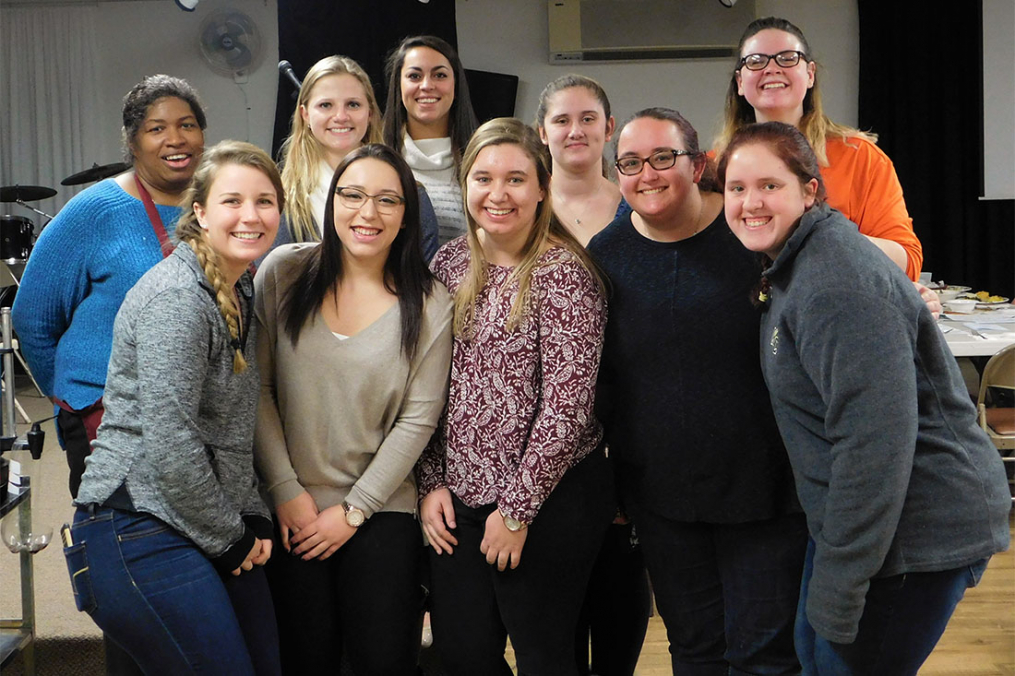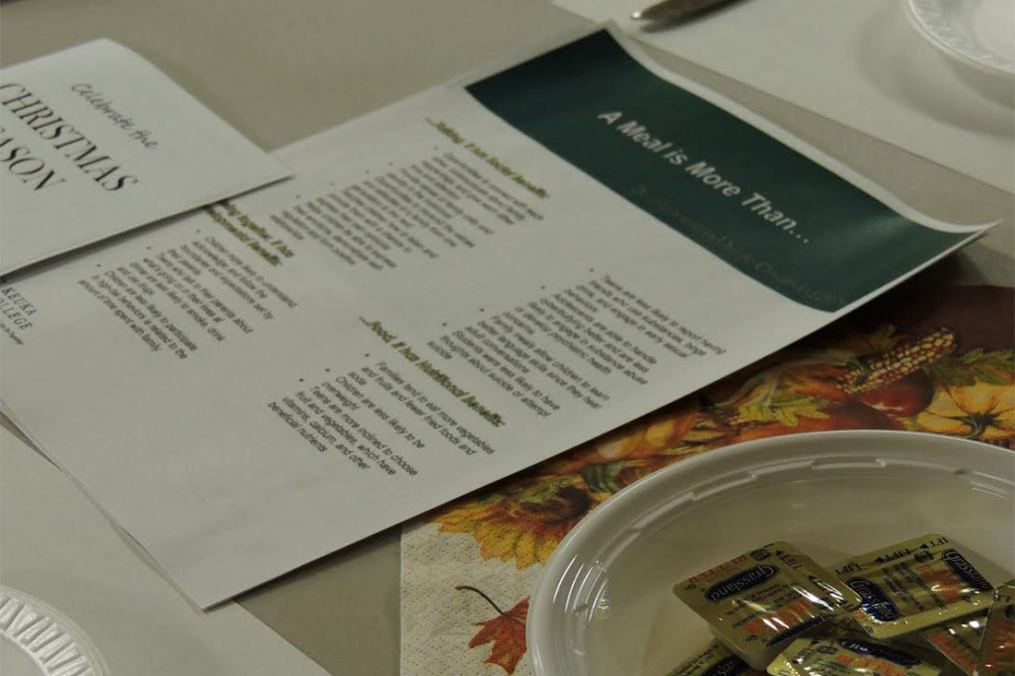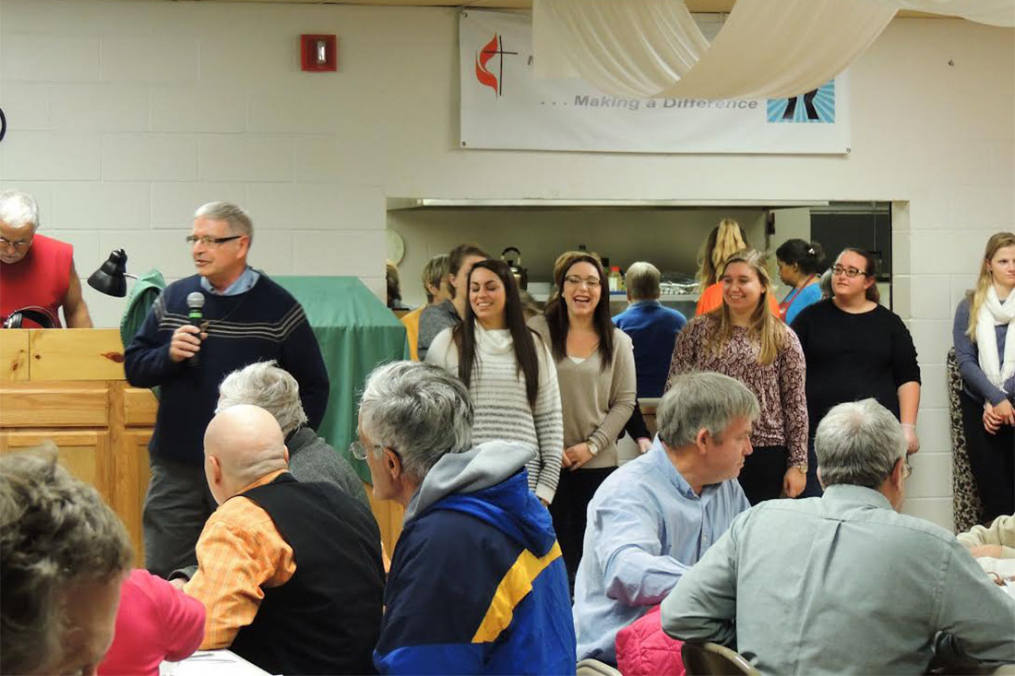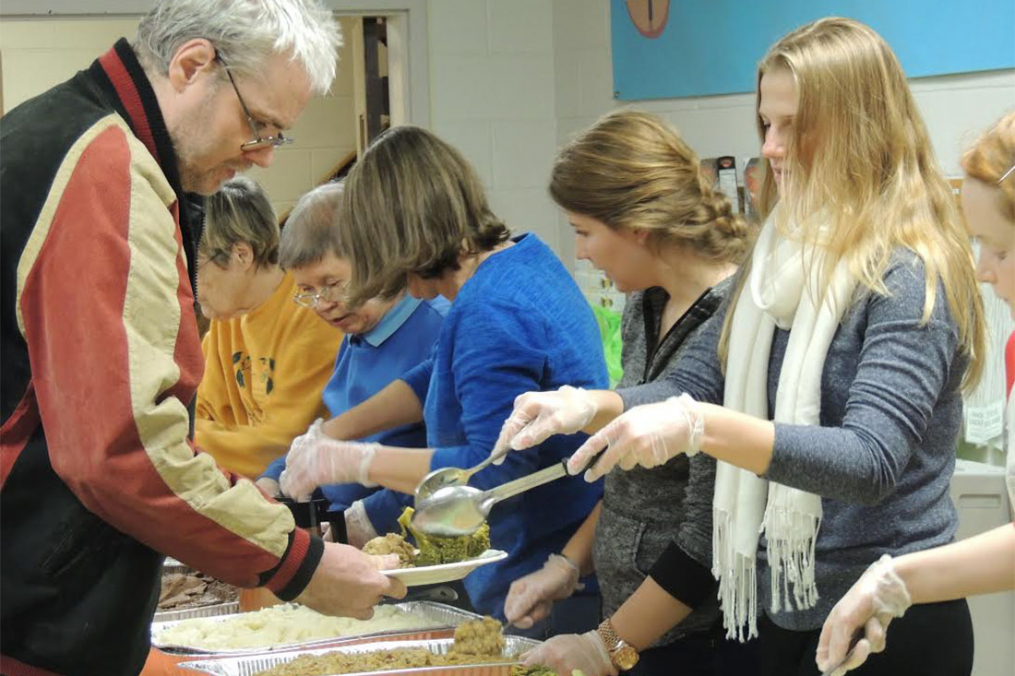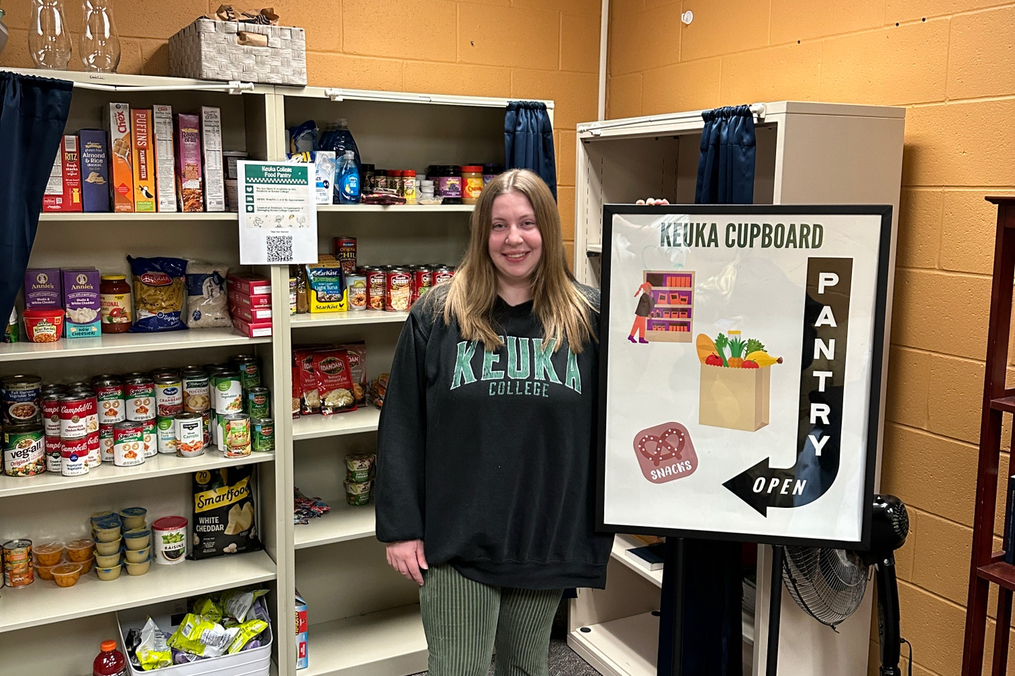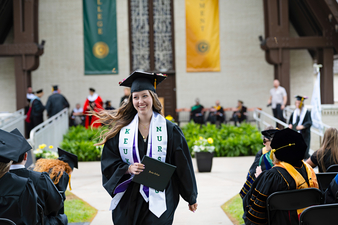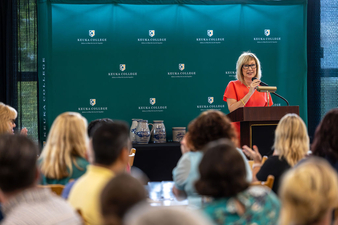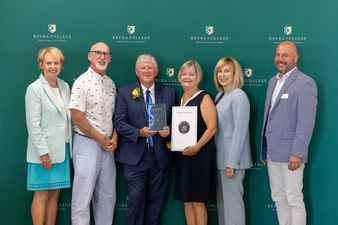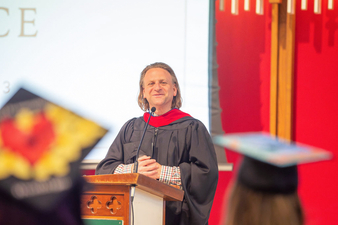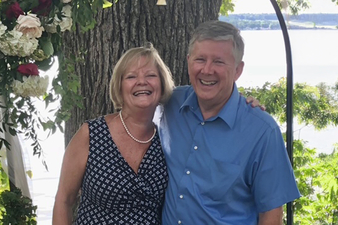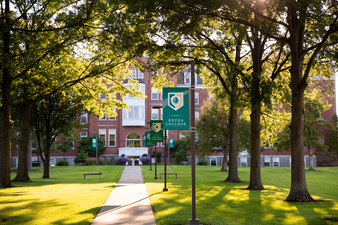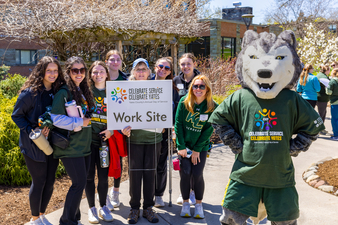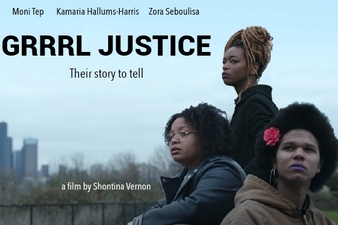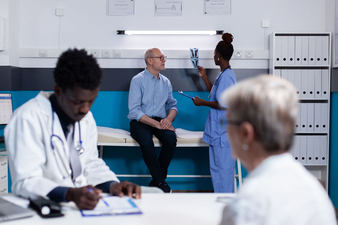For the students in Dr. Nicholas Koberstein’s Development in Middle Childhood course, a meal is more than just the food you eat.
For them, a meal is about sharing the day’s experiences with friends and family, creating memories, and feeding not just the body, but nourishing the soul
The students realized a meal is about reaching out, sharing, and connecting with others.
The project, titled A Meal is More… saw the students complete a service learning and social outreach project in collaboration with the United Methodist Church (UMC) in Penn Yan. The students assisted with the church’s monthly free community meal as part of a semester long service-learning project on the importance of having meals with friends and family.
“The idea for this project came about in a very student-centered and organic fashion,” says Dr. Koberstein, assistant professor of child and family studies. “Students were discussing the topic of family meals, and quickly began to list all of the potential benefits family meals have for families, communities, and society as a whole. As student excitement started to build in class, I worked to turn their anecdotal list into a research backed, evidence-supported list.”
Chandra McGonigal, a junior psychology major, says that during the dinner at UMC, the class handed out a fact sheet on the benefits of eating together.
“We then spoke briefly on what our project is about,” adds Chandra. “After a prayer, we served the community dinner. I found that a lot of community members do not have families, and the closest things they get to a family dinner is the church dinner they attend once a month.”
Sophomore Alyssa Rex, a criminology/criminal justice major from Perioa, Ariz., learned “that kids can do so much better in life when they have family meals and talk with their parents regularly.”
“Once the students started to see that their own thoughts and ideas were firmly supported by research,” Dr. Koberstein adds, “you could see their energy awaken. Pure moments in teaching and learning like this deserve to be nurtured, and pushed. It was at that moment I knew the students could do something great on the topic of family meals.”
This led Dr. Koberstein to challenge his students to take the information they collected and design a social outreach service-learning project to replace an existing project.
“To limit my own effect, and motivate the students to take ownership of the project, I asked them to meet as a class—without me present—to start project design,” says Dr. Koberstein.
Chandra adds that “we all learned a great deal of information and how to work as a team on this project. I think the thing I specifically thought was the most interesting, and stuck with me, is just how important eating meals with others is, and that family meals really help in every aspect of the child’s life.”
“One thing that will stick with me is how much you can get done and accomplish when you get an amazing group of people together,” says Alyssa.
In addition to creating the factsheet, the students also created a viral-style video and a website, which were presented at the dinner at UMC.
“Students are also in preparation to solicit sponsorship of follow-up meal, which they would like to be Keuka College-centered and held on-campus, with either community members or College faculty and staff attending,” says Dr. Koberstein. “This project highlights the innovative project-based experiential learning that Keuka College is known for, and showcases student compassion and involvement.”


